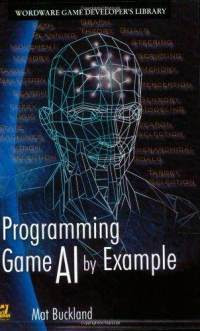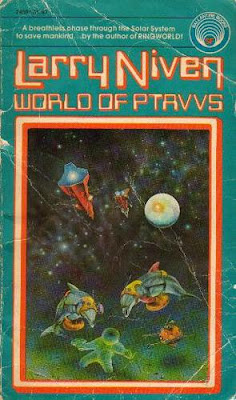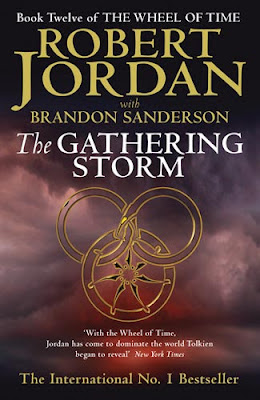
A wing gambit is a way for one of the players in a game of chess to sacrifice a pawn on the b or g files in order to deflect defenders of the center. Like all gambits, it is an aggressive attempt to gain position by sacrificing material, in this case, an attempt to control the center of the board. Today I want to talk about a gambit that occurred to me while I was thinking of a way to play against the Sicilian Defence. It involves moving a pawn to b4 to counteract the Black move c5, which is also, in a way, a sort of wing attack. I liked the concept: you outflank the opponent. Looking in the chess database, this is called the Sicilian Wing Gambit.
The first thing to notice is that the b pawn is irremediably lost. Declining the gambit brings no advantages to Black whatsoever, so they must take. After c5xb4, you have lost a pawn and also blocked the c3 square, the traditional best starting point of the queen's knight. So, as white, you have moved two pawns, lost one and also the best square for one of the minor pieces, while developing none. It doesn't look good and, for that reason, this gambit has been scorned in the past as unprincipled. It has made a comeback, though. It is not something you should expect to see at world chess championships, but it is good for blitz games and for throwing your opponent off track.
Even if White appears to have lost time, material and positional advantage, there is no clear way for Black to punish them. We will examine some of the options that Black has and where they led in various database and computer simulated games. The next move of White's is a3, attacking the pawn and preparing to open the a file. Another option of White's is to immediately challenge the center with d4. We will examine both options, as well as some rare variations (of such a rare gambit), like Nf3. So here is the PGN file I've compiled. Move carefully through all variations and read the comments. It might intrigue you enough that you would adopt the Sicilian Wing Gambit as a permanent part of your chess repertoire:
1. e4 c5 2. b4 {challenges c5 in order to deflect it from d4} cxb4
(2... b6 3. bxc5
(3. Bc4 {White is not forced to take.} e6)
(3. Nf3 {A normal development plan can be attempted while deciding what to do on c5} Bb7)
(3. b5 {Or even push the pawn forward, blocking the b knight and the rook for a while} Bb7
(3... a6 {although I don't particularly like the possibilities after a6.})
4. Nc3 e6 5. Nf3 Nf6)
3... bxc5 {Here Black declined the gambit and maintained a pawn on c4.} 4. Nc3 Nc6 5. Rb1 {But White gets first to control the open b file.} g6 6. g3 Bg7 7. Bg2 Ba6 {Black has tried to revert to their original Sicilian plan, but some parts are clearly different because of the lack of the b pawns})
3. a3
(3. d4 {White might want to move for the center immediately} d5 4. e5 {But here the engines give almost one full pawn to black}
(4. exd5 Qxd5 {while here the Black queen is safe from harassment because the b4 pawn is still there.})
4... Nc6)
(3. Nf3 {This is the line suggested by a chess engine. I'll follow it through a little more.} Nf6 4. e5 Nd5 5. a3 d6 6. Bc4 dxe5 7. Nxe5 e6 8. axb4 Bxb4 9. Bb2 O-O 10. O-O Qg5 11. Re1 Nc6 12. Qf3 Bd6 {No humans have played a game like this. From here the engine mercilessly simplifies the situation.} 13. Nxc6 bxc6 14. g3 Qf5 15. Qxf5 exf5 16. Bxd5 cxd5 17. Ba3 Bxa3 18. Rxa3 {Black has managed to control the center, even if the White rooks are really active.} Be6 19. Ra5 d4 20. Na3 Rfc8 21. d3 {At this point I ended the simulation. Clearly White has failed to control the center and gained only limited mobility. Black has an extra doubled pawn and the game will probably draw.})
(3. c4 {Santasiere variation: an even more gambity move, baiting b4xc3 followed by Nc3 and gaining development and center control. The few games that played like this did not finish well for White, though.} bxc3 4. Nxc3 g6 5. Bc4 Nc6 6. Nf3 Bg7 7. O-O Nf6 8. e5 Ng4 9. d4 O-O 10. h3 Nh6 11. Bf4 d6 12. Qe2 Nf5 13. Rfd1 Qa5 14. Rac1 e6 {This is an entire game that ended in an agreed draw - Rainer-Guenter 1995})
3... bxa3
(3... d5 4. exd5 {this is the main move}
(4. f3 e5 {A single game with this situation. White has delayed too much piece development and pushing of the d pawn. Black won.})
(4. e5 {But this is met more and more in Blitz games.} Nc6 5. d4 Bf5
(5... Qb6 6. Be3 Bf5 7. Bd3 Bxd3 8. Qxd3 e6 {This is the recommendation in the video, with Black having a better game.} 9. Ne2 Nge7 10. O-O Nf5 11. axb4 Bxb4 12. c3 Be7 13. Nd2 O-O 14. Nf4 Rfd8 15. g4 Nxe3 16. Qxe3 {Black is better with the a and b passed pawns.})
6. axb4 Nxb4 7. Bb5+
(7. Na3 e6 8. c3 Nc6 {This is the situation covered in the video, Black has extra development, but difficulty in continuing it. White eyes b5 and has everything wide open.})
7... Bd7)
4... Qxd5
(4... Nf6 5. axb4 Nxd5 6. Nf3 Nxb4 7. d4 Bf5 8. Na3 e6)
5. Nf3 {Marshall variation}
(5. Bb2 {Marienbad variation} e5 6. axb4)
5... e5 6. axb4
(6. Bb2 Nc6 7. c4 {en passant would be a bad move, due to Nc3} Qe6 8. Bd3 Nf6 9. O-O Bd6 10. Re1 O-O 11. axb4 Nxb4 12. Bf1 e4 13. d3 Qd7 14. dxe4 Bc5 15. Bxf6 Qxd1 16. Rxd1 gxf6 {Another variation from the video, stopped here as it didn't look very promising for Black.})
6... Bxb4 {White's plan backfired. Instead of a strong center and fast development, Black has the center and a strong center queen. The engines, however, show a mere 0.2pawns in advantage for Black.})
(3... e6 4. axb4 Bxb4 5. c3 Be7 {Another win for Black: a silly dark bishop, a blocked knight, but White keeps control over part of the center and controls one open semifile.})
(3... Qa5 {A possible annoying move} 4. Bb2 {But this solves most of the issues.} Nc6 5. Nf3 Nf6 6. Bd3 {Yet not all. The d pawn is effectively pinned.})
(3... Nf6 4. e5 Nd5 5. axb4 Nxb4 6. c3 N4c6 7. d4 {Black has a knight out, but White has a monster pawn chain, an open semi file and a lot of open avenues. Black will attempt to control the light squares, while White will be busy trying to achieve some sort of king safety.})
4. Nxa3 {A knight on the rim is dim, but here it prepares to go to b5, where it would force the queen to defend c7 and threaten a7} d6 5. d4 {Black wanted to stop White from having a two pawn center. Instead, even a three pawn center is possible.} Nf6 6. Bd3 {this seems to be the mainline, but even so, there are only 43 games starting like this in my game database} Nc6 {From here, engines and database, all three games, show equality between players.} *
Take notice that I am still a beginner in chess and my analysis is based on what I've compiled from the database of chess games and a video. Here is a video and the PGN of a game that played along the main line in my analysis (Vladimir Grabinsky 2361 - Albert Lyubimtsev 2148, from 2003) where White won.
[youtube:yN73tcJlsKw]
1. e4 c5 2. b4 cxb4 3. a3 bxa3 4. Nxa3 d6 5. d4 Nf6 6. Bd3 Nc6 7. c3 g6 8. Ne2 Bg7 9. O-O O-O 10. f4 Ne8 11. Kh1 Nc7 12. Qe1 a6 13. f5 b5 14. Nc2 Bd7 15. Qh4 Ne8 16. Rf3 e6 17. Qg3 {White missed an opportunity here, according to the chess engine.}
(17. Bg5 f6 18. Rh3 fxg5 19. Qxh7+ Kf7 20. Qxg6+ Ke7 21. Qxg5+ Rf6 22. Nf4 exf5 23. Re1 Kf8 24. exf5 Rh6 25. Rxe8+ Bxe8
(25. .. Qxe8 {This would have been a blunder leading to massive material loss and/or mate in about 15 moves.})
26. Qxh6 Bxh6 27. Ne6+ Ke7 28. Nxd8 Nxd8 29. Rxh6 {A much simplified position, where White has two extra pawns and Black has an exposed king.})
17. .. e5 18. Be3 Bf6 19. Raf1 Ng7 20. Bh6 {This move maintains both sides to a near equality, with a slight advantage for White.}
(20. d5 {The computer sees this option, which wins almost a pawn immediately and locks the king side from the defence of Black's pieces} Bh4 21. Qh3 Nb8 22. g4 Ne8 23. Bh6 g5 24. f6 b4 25. Ne3 a5 26. cxb4 Qc8 27. bxa5 Na6 28. Ng3 Qc5 29. Ngf5 Ra7 30. Ne7+ Kh8 31. Bxf8 h5 32. Bh6 Qxe3 33. Rxe3 Bxg4 34. Qg2 Kh7 35. Bxg5 Rxe7
(35. .. Bxg5 36. Rh3 Nxf6
(36. .. Bxh3 37. Qxg5 Bg2+ 38. Qxg2 Nxf6 39. Rxf6 Rxe7 40. Qg5 Re6 41. dxe6 fxe6 42. Rh6#)
37. Rxf6 Kg7
(37. .. Bxf6 38. Qxg4 h4 39. Qg8+ Kh6 40. Nf5+ Kh5 41. Be2#)
(37. .. Rxe7 38. Qxg4 Kg8 39. Qxg5+ Kf8 40. Rxh5 Ke8 41. Rxd6 f6 42. Qg8#) 38. Rxh5 Rc7 39. Qxg4 Rc1+ 40. Rf1 Rxf1+ 41. Bxf1 f5 42. Qxf5 Bxe7 43. Rh7+ Kg8 44. Qf7#)
36. Bxh4 Nac7 37. fxe7 f6 38. Be2 f5 39. Bxg4 hxg4 40. Rxf5 Ng7 41. Qxg4 Nce6 42. Rh5+ Nxh5 43. Qxh5+ Kg8 44. dxe6 d5 45. Rg3#)
20. .. Qe7 {-2.11/15 10 The engine recommends Ne3, which leads to a variation where for more than 20 moves white appears to be a minor piece ahead, only the score is positional only. Queens come off the board, too.} 21. Qf2 {+0.26/14 10 Alekhin's Gun always looks impressive. From here it goes downhill for Black.} gxf5 22. Rg3 f4 23. Nxf4 exf4 24. Qxf4 Nd8 25. e5 *
Update: I've updated the above game with some computer analysis.
It is important to understand that Black did not lose because of the wing gambit, but because of their own mistakes further on. According to the computer, both players had almost complete equality up to almost the 20th move, which does not bode well for White. Most chess engines give about 0.25 points to White for having the first move, so somewhere that advantage was lost. However, we are not computers.
For what I see in the various games that were played using this anti Sicilian opening, I see several key points where each side is trying to reach. A common theme is the pushing of the e pawn from e4 to e5, defending it with d4 and defending that (while cutting access to the White king) with c3. Other variations see a strong three pawn center for White, making a sham of Black's attempted Sicilian. Moving the e pawn prematurely, before getting rid of the Black b4 pawn seems to be a mistake, though, even if it immediately achieves the classic two pawn center. The a3 move seems to want to open up the a file for the rook, but in the simulations I've run, the rook doesn't seem to have an important role. Also to note is that the queen side knight will most likely take the Black pawn on a3, which takes it to the rim of the board and away from the center. So even if control of the center is achieved, maintaining it might become problematic. Gutsy c4 pawn push, goading Black to take it en passant, only works if Black falls for it and even so, not very well: the knight on c3 will remain undefended on a move like d4. The computers recommend Black ignoring that pawn and pushing to e5 with more than half a point advantage.
On Black's side, it appears as there are several strategies as well. Defending with b6 declines the gambit and leads to something similar to the original Sicilian, regardless of the desired flavour of it. Even if White is pushing the pawn to b5 and hinders the development of the Black queen side knight. While the Black pawn is still on b4, attempts to break out the center, like the Scandinavian looking d5 work better, as an exchange on that square can end with a comfortable Black queen on d5 without the threat of Nc3. In general, taking the pawn on a3 seems to be a mistake, as White will only aid in the dark bishop's development if they take and the Black pawn on b4 can be defended in multiple ways further on, invalidating the gambit. A possible annoying move for White is moving the Queen to a5 and the recommendation of the guy in the video is to move it on b6, an intriguing strategy that seems to break the opening principle of not bringing the queen out too soon. Moving the e pawn at least to e6 seems to bring benefits as well.
Even if the Sicilian Wing Gambit is not very common and thus not analysed in depth so much, it doesn't mean it can't be a useful tool. I know that most chess opening videos have more to offer than what I posted above, but given the rarity of the gambit, it only makes sense to have less information on it, no tested traps, etc. If you play this opening, please let me know. I could update this post with your real life experience playing it.
Update: I've found a page where GM Roman Dzindzichashvili considers the Wing Gambit in the Sicilian a reason to seek psychiatric help :) Here is the link.
Also, I have updated the PGN with the official names for some of the variations of the gambit.
Update 8 March 2016: I've revisited this gambit with more research and computer analysis, check it out: Sicilian Wing Gambit - Revisited












